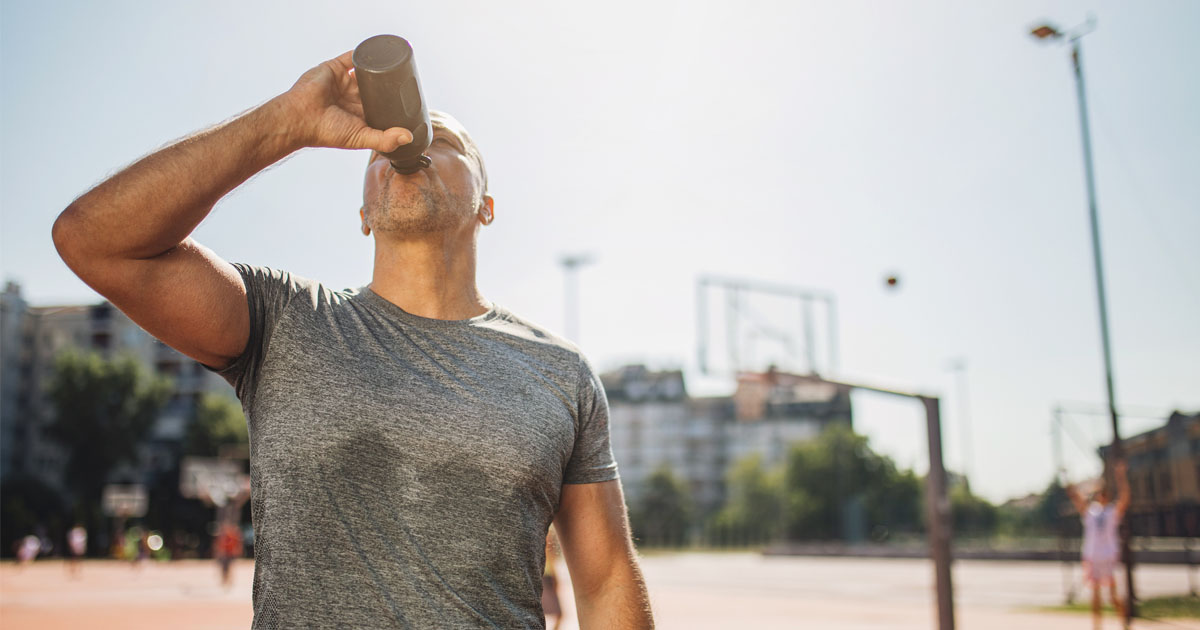
Whether you gorgeously glisten or leave puddles in your path, sweating is natural and necessary. The process is protective, cooling down our bodies and controlling our core temperature. We swipe on antiperspirants and slip-on moisture-wicking socks to keep things under control, but there’s no stopping the bodily function—except perhaps with Botox.
Sweat is one of those things that’s mostly annoying, mainly when yellow underarm stains ruin your style. And when we start to smell, the embarrassment is not only evident to everyone, but offensive to even our noses.
But sweat’s not that serious. The saying, “No sweat!” is as common as perspiration itself. Finding the fun in the matter may not stop that bead from dripping towards your brow, but it may just get your mind off it. These trivia tidbits are a learning experience you’ll want to share. Although you may want to refrain from educating a pal who’s prone to perspiring, it may make him self-conscious.
While women have more sweat glands, men sweat more—about four times more! Basically, women need to get hotter before they start to sweat. Estrogen plays a role here, too, promoting lower body temperatures in women. That said, it all depends much on the size of the person, male or female. Smaller folks sweat less. As Live Science explains, “Smaller people are more dependent on increased skin blood flow for cooling than they are on sweating. Too bad for the big guys who need unlimited undershirts.
A literal “no sweat” condition: Some people are unable to sweat, afflicted with anhidrosis. Cooling down can be tricky, even leading to heatstroke in the worst cases.
Parents of teens who play sports may beg to differ, but only a specific type of sweat smells. Eccrine sweat glands, throughout most of our body, produce odor-free sweat. Apocrine sweat glands, like those found in the underarms, groin, and scalp, produce the stinky type. It doesn’t matter how much sweat accumulates, as the odor can emerge before you even sweat, like in high-stress situations. A generous application of a good deodorant before an important meeting is a must-do.
When average won’t do: Some people need more protection, be it to manage odor or wetness. Clinical strength deodorants and antiperspirants are available for those who speed through a Speed Stick.
Nearly every inch of our bodies are covered in sweat glands, aside from the ears, lips, and nails. As far as functioning goes, we ought to be thankful that we weren’t created any other way. Hearing would be a challenge when our canals got flooded after a vigorous workout, although the cotton swab companies would be soaring in the stock market. Sweaty nails don’t make sense, and dripping lips would affect everything from talking to taking a bite. Sweet kisses would be more like slobber. No thanks.
Super sweaters: While they don’t have to worry about their ears, lips, and nails soaking in sweat, those who suffer from hyperhidrosis sweat excessively. About 2% of the U.S. population is sweating profusely. There are treatments available, so if you’re concerned about your output, consult a vybe physician.
Diet plays a role in so many things, from our cholesterol levels to our circumference. It also affects sweat, so before you take that next bite, be sure you’ve got a hanky on hand. Some foods that increase sweating include spicy foods like chili peppers, caffeinated beverages, alcohol, salt, meat, and many processed foods (especially the fat-filled ones). Some people now have no clue what they’ll eat if they want to stay dry on their dinner date, considering how much of these foods and drinks Americans consume.
With hot summer nights, it’s not uncommon to wake up drenched in your sweat. However, if turning up the A/C in your bedroom or wearing lighter pajamas doesn’t reduce your excessive sweating at night, there could be other causes for your night sweats. Consult a vybe physician for a thorough examination and diagnosis. Based on your medical history, a physician may be able to understand the causes of your night sweats and find a treatment plan.
Recurring night sweats can be caused by several health conditions, including menopause, hyperhidrosis, hormone disorders, an infection, or side effects from certain medications.
If excessive sweating disrupts your daily activities or is accompanied by fever or weight loss, seek medical attention at your local vybe urgent care.
FIND YOUR VYBE